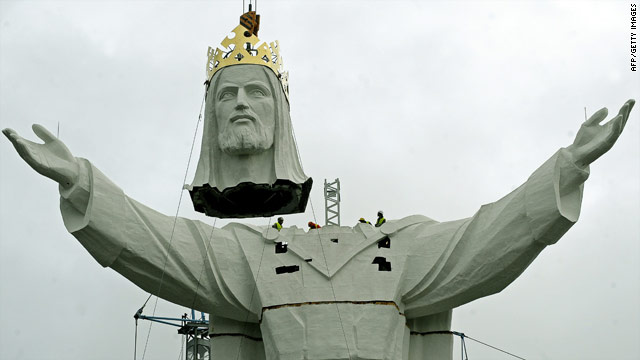Following up on yesterday’s summary of approaches to integrating wisdom and Biblical Theology, Wilson discusses integrating Wisdom Literature with Biblical Theology following Bruegemann and Goldingay.
Brueggemann proposes a dialectic approach to Biblical theology – using the poles of creation and redemption. Goldingay develops this idea, suggesting that while Salvation History is a prominent strand in Biblical revelation we can focus on it at the expense of baby and bathwater, neglecting stuff like how God interacts with nature, how he interacts in day to day life, and wisdom. He makes four statements that summarise the relationship between the two poles.
1. The world God redeems is the world of God’s creation.
2. The world that God created is a world that needed to be redeemed.
3. Humans are redeemed to live again their life created before God.
4. The redeemed humanity still looks for a final act of redemption, or new creation.
Four good points. And the question “what does this passage contribute to our understanding of God’s creation and our place in it as his people” is a useful one to ask in exegesis, perhaps not quite as useful as “how does this passage demonstrate God’s plans to redeem the world through Jesus, and how do you fit in that” – but splitting them is creating a bit of an unhelpful dichotomy. They’re the same coin.
Here’s Wilson:
“The first two [points] establish the connection between creation and salvation history (or covenant), and ensure that both voices are heard. God’s pusposes are wider than the covenant people. Yet they are also focused on Israel, and effected through them.”
I like the idea that ancient wisdom movements are analogous to the later philosophies that Augustine and others before him (like Justin Martyr) suggested God’s people should pillage like gold from Egypt – truth is truth wherever it is found. How’s that for integrating different disciplines from college (actually, I like that idea a lot, and I’ll post something on it post exams – I’m working up a pretty big idea that needs to be blogged in order for me to stop dwelling on it – that’s how I roll).
“The last [point] enables us to see the incompleteness and forward looking nature of the Old Testament. The expressions of future hope that we find mainly in the prophetic and apocalyptic materials are rightly seen as part of the Old Testament core. When we read these together we appreciate some of the flow of Old Testament theology. We see the movement from creation, through God’s redeeming acts in different generations, to the future hopes variously described as redemption or new creation. This is the big picture, the broad canvas of the Old Testament.”
But there’s also a smaller picture, which Goldingay recognises in point three (but which I reckon is part of the bigger picture too, because Christians living that created life before God is part of bringing people into the grander narrative)…
Wilson on Goldingay’s third point:
“Here he again recognises that both creation and redemption have a part to play – people are redeemed to live their created life before God. Daily living is not just the concern of the wisdom materials. The Torah has extensive legislation that affects everyday life. The prophets call Israel back to right living within the covenant. Yet, the Wisdom themes have a great input here, particularly in the area of attitudes and the formation of character.
Kidner’s commentary on Proverbs says that wisdom focuses on “details of character small enough to escape the mesh of the law and the broadsides of the prophets.”
Wilson likes this twin pole idea championed by Brueggemann and followed by Goldingay. But he raises two concerns with regards to the Wisdom literature..
1. This point three needs clarification – wisdom isn’t framed as a response to God’s redemptive acts but rather to creation itself [though as Goldsworthy points out the “Fear of the Lord” suggests that wisdom might be based in the knowledge of God’s position as redeemer]. Scobie is the guy who suggests that wisdom is a response to the world and the human experience. Wilson says “perhaps what is needed is a broadening of our understanding of the human response so that it includes responding to God’s redemptive acts (the law and the prophets) and to God’s order in creation (especially in the wisdom materials).
2. The connection between creation and redemption needs to be explored further – which is more fundamental? He breaks it down to the questions:
“Is the focus in the salvation-history materials on “what requirements should be imposed on the covenant community?” While that of wisdom is rather “what values should I adopt or strive for?”
A nice summary of the functions of wisdom and the law that Robyn and I worked up yesterday is that the law provides the ethical low base for how God’s people are to live, while wisdom and the laws regarding loving God, and loving your neighbour, are the high bar. It’s the way God’s people are meant to live. Ideally.
Coming up next – I’ll try to summarise the approach I landed on in my essay (which provides a function for the wisdom literature that focuses on a purpose for the wisdom literature that fits under this model, and a method of integrating the different books that doesn’t put them in opposition to one another), and I’ll, as a bonus, put forward my dad’s solution. Which I also haven’t read anywhere else.

